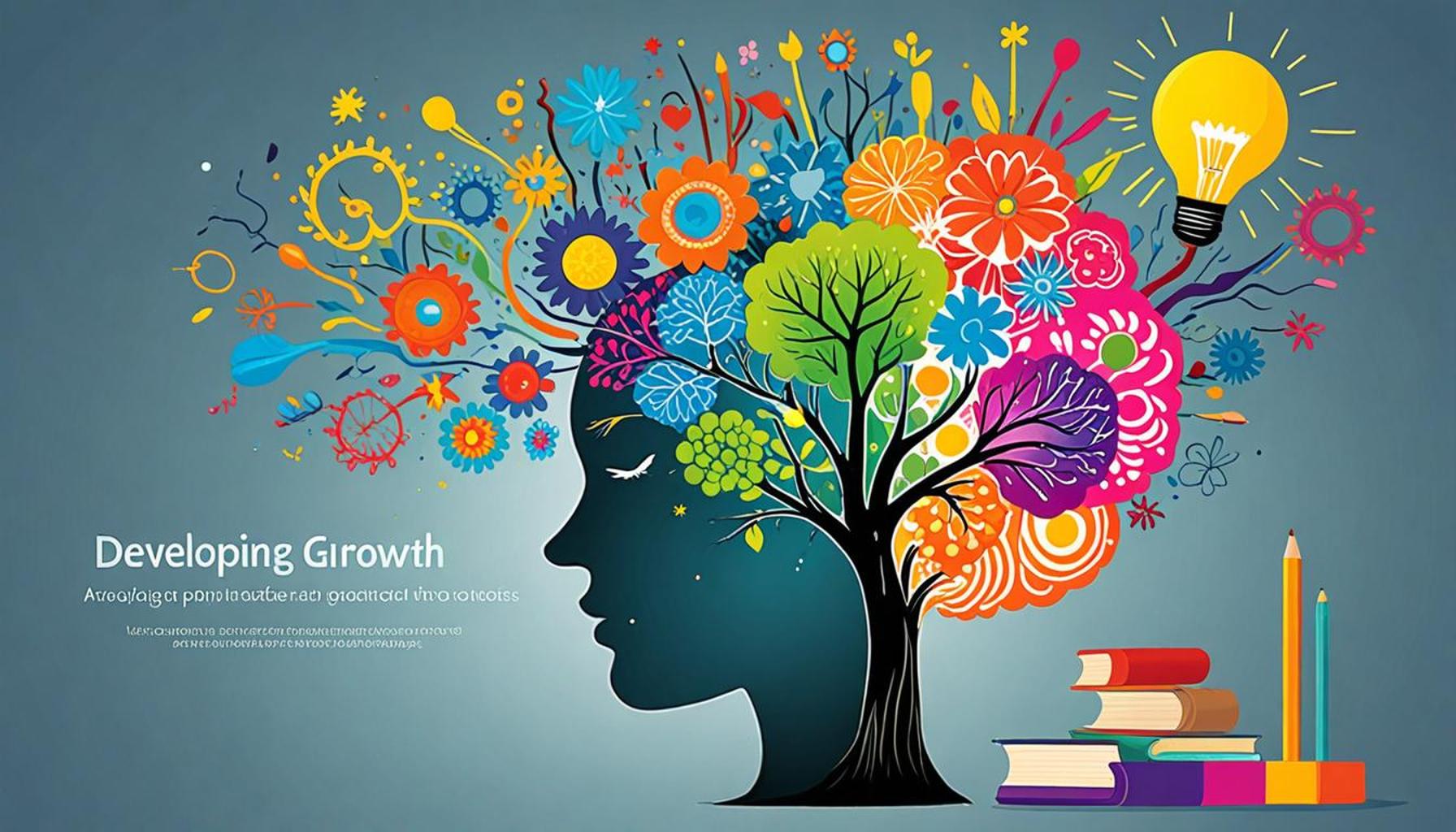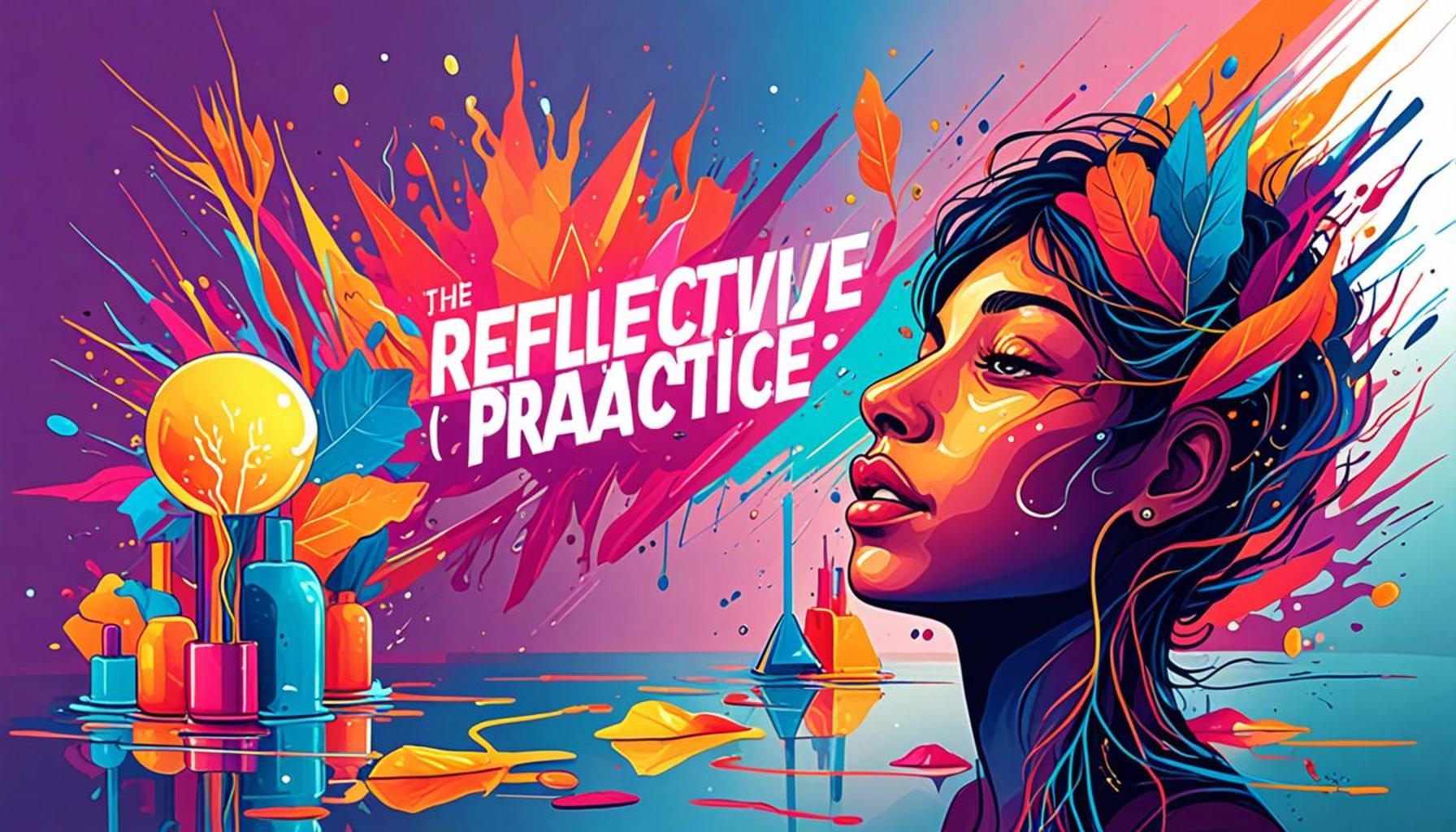Transforming Reflective Practice into a Tool for Personal and Professional Motivation

The Impact of Reflective Practice on Personal and Professional Growth
In today’s fast-paced world, the need for personal and professional growth has never been more crucial. Reflective practice emerges as a powerful method to ignite motivation and creativity. When maximized, it not only enhances self-awareness but also drives us toward our goals. For individuals navigating the complexities of urban life in cities like Lagos or Abuja, or those working remotely in various sectors, integrating reflective practice into daily routines can offer significant advantages.
Consider the multitude of ways reflective practice can refine your journey:
- Enhanced self-awareness: Reflecting on one’s experiences allows for a clear understanding of both strengths and weaknesses. For instance, a teacher in a Nigerian classroom may reflect on their teaching methods, identifying which approaches resonate with students and which do not. This self-awareness can lead to improved lesson planning and better student engagement.
- Improved decision-making: By learning from past experiences, individuals can make informed decisions moving forward. For example, a business professional assessing their previous projects can pinpoint successful strategies and avoid repeating ineffective ones. This analysis fosters a culture of continuous learning, crucial in Nigeria’s rapidly evolving market.
- Goal setting: Reflective practitioners often craft clear, actionable objectives based on insights gathered from their reflections. An aspiring entrepreneur, for example, might set specific financial targets and timelines after considering market research and personal interests, thus laying out a roadmap for success in Nigeria’s vibrant business landscape.
In Nigeria, a country rich in diverse cultures and opportunities, reflective practice can be tailored to suit individual needs. For instance, both artisans and tech startups can adopt reflective methods tailored to their fields, ensuring their approaches resonate with local demand and societal needs. Utilizing cultural experiences as a backdrop for reflection can enhance both personal insight and community connection.
Exploring how to transform reflective practice into a tool for motivation offers invaluable insights. This journey will not only elevate personal growth but also inspire professional excellence. By incorporating moments of reflection into weekly practices, such as journaling or peer discussions, individuals can cultivate an environment that thrives on creativity and innovation. Could the act of stopping and reflecting be the key to unlocking your full potential? The answer may lie in the deliberate and conscious engagement with one’s thoughts and experiences, leading to not just self-discovery but also societal impact.
LEARN MORE: This related article may interest you

Understanding the Mechanisms of Reflective Practice
The essence of reflective practice lies not only in its application but also in understanding how it operates as a catalyst for personal and professional motivation. This process encourages individuals to pause and critically assess their experiences, thus fostering a deeper connection between thought and action. Instead of merely going through the motions of daily tasks, practitioners learn to analyze their actions, beliefs, and outcomes, paving the way for informed strategies moving forward.
A profound aspect of reflective practice is its adaptability; it can be utilized across various professions and settings. Professionals in Nigeria, ranging from educators to healthcare workers, can greatly benefit from dedicated periods of reflection in their workflows. Here are several key components that exemplify how reflective practice can be transformed into an effective motivational tool:
- Identifying Patterns: Engaging in reflection regularly cultivates the ability to identify trends in one’s behavior and decisions. By spotting these patterns, professionals can modify their approaches to align better with their goals. For example, a nurse reflecting on patient interactions may discover communication styles that yield better outcomes, leading to more effective patient care.
- Building Resilience: Reflective practice encourages individuals to confront setbacks constructively. If an entrepreneur faces a failed project, rather than succumbing to discouragement, reflective techniques enable an assessment of what went wrong and promote the development of resilience. This mindset allows professionals to rise stronger and more capable in future endeavors.
- Fostering Creativity: When time is set aside for reflection, it creates space for innovative thinking. Professionals can brainstorm new ideas informed by their past experiences, leading to solutions that are culturally relevant and aligned with local needs. For example, a marketing executive might reflect on failed campaigns to inspire a fresh approach that resonates better with the Nigerian audience.
Integrating reflective practice into a structured routine makes it even more effective. This might include strategies such as weekly self-assessment sessions, guided discussions with mentors, or journaling key insights gleaned from challenging experiences. By adopting such methodologies, individuals can transform the mundane into opportunities for growth. Too often, professionals overlook the richness of their daily experiences, but with a conscious commitment to reflection, they can tap into a reservoir of motivation and potential.
Moreover, understanding the cultural context in Nigeria plays a vital role in refining reflective practice. By embedding local values and practices into reflections, individuals can unlock unique insights that traditional frameworks might overlook. This cultural sensitivity not only makes reflective practice more meaningful but also adds to the motivation to drive change and innovation in various fields.
As we delve deeper into the transformative potential of reflective practice, the question becomes not if it can motivate individuals but how effectively it can inspire a profound shift in personal and professional landscapes. The upcoming sections will explore practical approaches and inspiring stories that illustrate this journey.
| Advantage | Description |
|---|---|
| Enhanced Self-Awareness | Engaging in reflective practice facilitates deeper self-understanding by allowing individuals to evaluate their thoughts, actions, and emotions. |
| Goal Setting & Clarity | Through systematic reflection, individuals can set clear, SMART goals that drive both personal growth and professional advancement. |
| Learning From Experience | Reflection helps in recognizing patterns and lessons from experiences, promoting a culture of continuous improvement. |
| Increased Motivation | By identifying achievements and challenges, reflection can significantly boost one’s intrinsic motivation to pursue set goals. |
The concept of transforming reflective practice into a tool for personal and professional motivation extends beyond mere self-evaluation. Integrating these practices into your daily routine fosters an environment where deep insights and proactive strategies become a norm. For instance, utilizing journals or digital platforms for reflection not only captures thoughts but also enhances accountability. Additionally, fostering a community around reflective practices encourages sharing diverse perspectives, which can amplify the learning process. Emphasizing peer feedback in reflective sessions can lead to innovative solutions that are often overlooked in isolated reflections. By making reflective practice a cornerstone of personal development, individuals can effectively navigate challenges and seize opportunities in their careers, paving a clear path toward success. Thus, investing time in reflective practices promises not just motivation, but also a lifelong journey of achieving both personal fulfillment and professional excellence.
YOU MAY ALSO LIKE: Read read another article
Implementing Reflective Practice for Enhanced Growth
While understanding the mechanisms of reflective practice is crucial, the implementation of specific strategies is equally important in transforming it into a dynamic tool for personal and professional motivation. By integrating reflective practices into daily routines, individuals can create a systematic approach that fosters continuous growth and motivation.
One particularly effective method is the establishment of a reflection framework. This can be customized to suit individual needs and work contexts. For example, professionals might adopt a simple model like “What? So What? Now What?” This framework encourages them to consider:
- What? – What happened? Here, individuals provide an objective account of their experiences, whether that includes successful projects or areas where they faced challenges.
- So What? – What does it mean? This section involves analyzing the emotional and professional impact of those experiences, helping individuals understand how they relate to their broader goals.
- Now What? – What will I do now? This prompts individuals to outline actionable steps based on their reflections, promoting a proactive mindset aimed at improvement.
In Nigeria, where the diverse cultural landscape may introduce unique challenges in various professional environments, such a framework enables professionals to navigate these complexities while fostering motivation. For instance, a teacher reflecting on their teaching approach may discover regional learning preferences that can better engage students, thus enhancing both motivation and academic outcomes.
Moreover, collaboration enhances the power of reflective practice. Forming small groups or professional learning communities allows individuals to share insights and draw on collective experiences. This collective reflection not only diversifies perspectives but also inspires motivation as members encourage one another to set and achieve new goals. In Nigeria’s educational sector, for instance, teachers participating in peer review sessions can innovate their teaching methods and experience renewed motivation through collective success and learning.
Another critical aspect is the use of technology to facilitate reflective practices. Digital tools such as blogging platforms or apps designed for reflective journaling can capture thoughts and insights effectively. Using these platforms, professionals can track their progress over time, revisit past reflections, and monitor the evolution of their thought processes. This not only consolidates learning but also serves as a motivational tool, as individuals witness their growth and transformation.
Data supports the notion that reflective practice yields significant benefits. A recent study revealed that professionals who engage in consistent reflective activities experience a 30% increase in job satisfaction and motivation compared to those who don’t. Such promising statistics highlight the urgency for professionals across all sectors in Nigeria to adopt these practices actively.
Additionally, the role of mentors in guiding reflective practice cannot be understated. Engaging with experienced mentors allows individuals to gain valuable insights and perspectives that can shape their reflective inquiries. In fields like healthcare, mentorship can dramatically uplift motivation levels as less experienced professionals learn from seasoned practitioners, thus bridging the gap between experience and theory.
The transformative power of reflective practice becomes even more apparent when considering the linkage between self-awareness and motivation. Professionals who engage in reflective practice develop a greater understanding of their strengths and areas for improvement. For individuals in competitive fields, this self-awareness translates into strategic planning, enabling them to visualize their career trajectories effectively. Personalizing and adapting reflective practices to better suit one’s unique professional journey can significantly boost motivation, leading to not just achievement, but also fulfillment.
SEE ALSO: Click here to read another article
Conclusion: Harnessing Reflective Practice for Lasting Motivation
In conclusion, the journey toward transforming reflective practice into a tool for personal and professional motivation is not just essential; it is a necessity in today’s fast-paced work environment. By adopting structured reflection frameworks, individuals empower themselves to navigate their experiences with clarity and purpose. The simple model of “What? So What? Now What?” serves as an effective starting point, encouraging deep introspection that leads to meaningful insights and actionable goals.
Furthermore, the power of collective reflection cannot be overstated. In Nigeria, where collaboration is often rooted in communal practices, building professional learning communities fosters shared growth and motivation. Engaging in dialogue with peers can ignite new ideas and strategies that invigorate personal and professional development. The incorporation of technology into reflective practices enhances this process, offering platforms where professionals can articulate their thoughts, track progress, and celebrate growth.
As evidenced by recent studies highlighting a 30% increase in job satisfaction among reflective practitioners, it becomes clear that the benefits extend far beyond individual motivation. Organizations that encourage reflective practices reap the rewards of a more engaged and fulfilled workforce, ultimately leading to enhanced productivity and success.
Finally, the role of mentorship in guiding this transformative journey is invaluable. With seasoned professionals offering insights and support, new entrants can overcome obstacles and elevate their motivation and performance. By embracing reflective practice as a continuous tool for self-discovery and improvement, individuals and organizations alike can foster a culture of excellence, paving the way for sustainable personal and professional growth in Nigeria and beyond.


